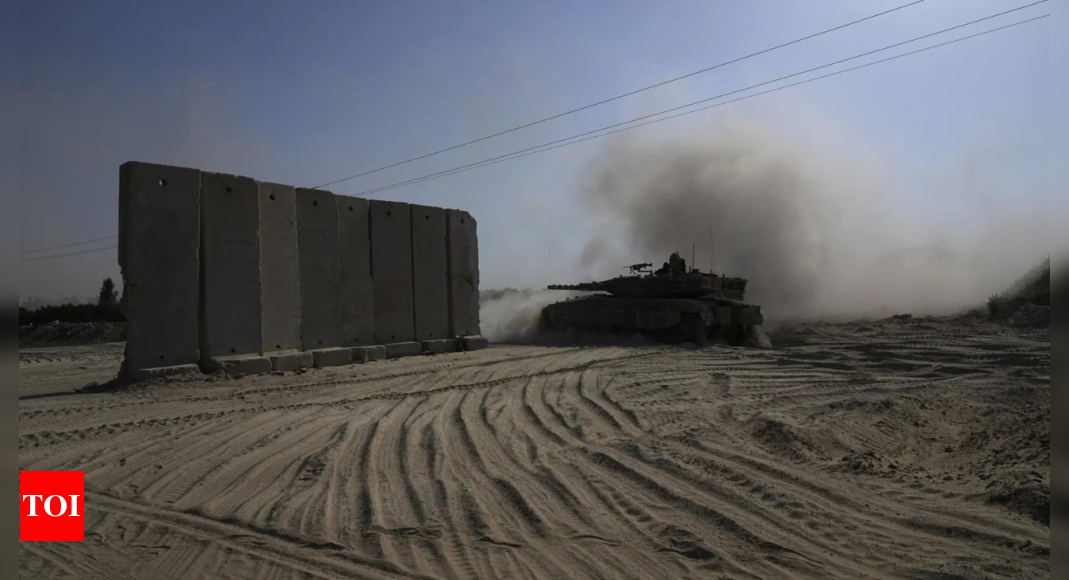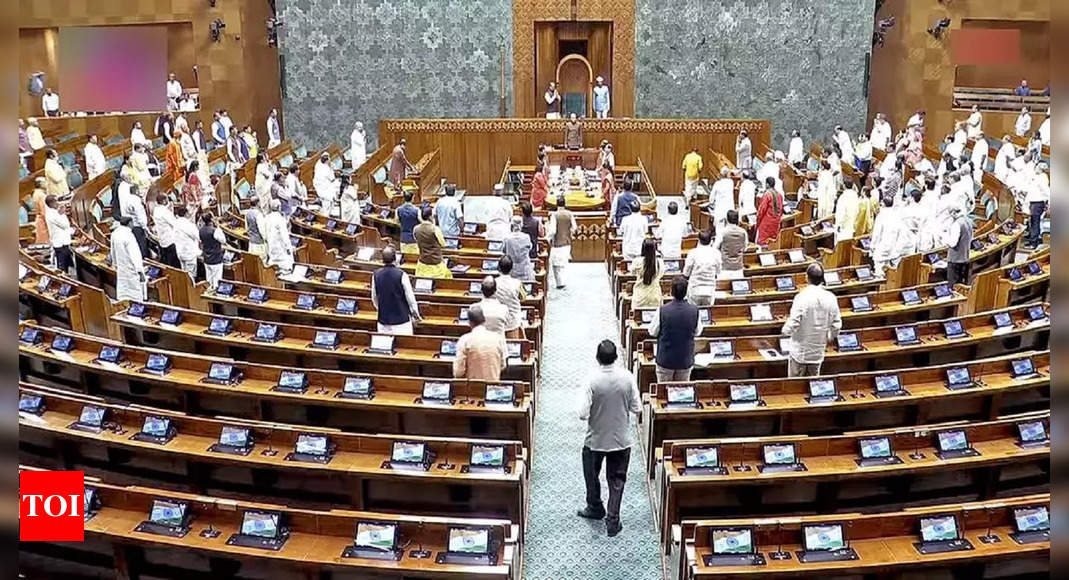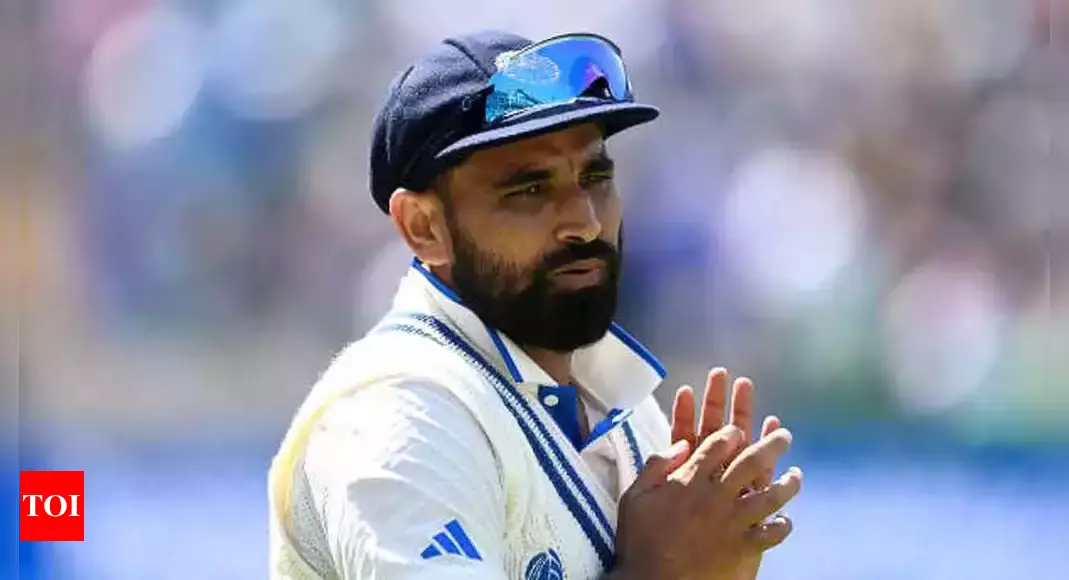
An Israeli airstrike on Saturday killed at least 90 Palestinians in a designated humanitarian zone in Gaza, according to the enclave’s health ministry.
The attack aimed at Hamas military chief Mohammed Deif, whose fate remains uncertain, marked the deadliest Israeli offensive in Gaza in weeks, causing widespread devastation among displaced persons sheltering in the area, reported Reuters.
The strike, which targeted Deif and Rafa Salama, commander of Hamas’ Khan Younis Brigade, also left 300 people injured. “We are still checking and verifying the results of the strike,” an Israeli military official said. Deif has previously survived seven Israeli assassination attempts and has been on Israel‘s most-wanted list for decades, accused of orchestrating numerous attacks.
Hamas dismissed Israel’s claims that the airstrike targeted senior leaders of the group, labeling the assertions as false. “All the martyrs are civilians and what happened was a grave escalation of the war of genocide, backed by the American support and world silence,” said Sami Abu Zuhri, a senior Hamas official.
Displaced individuals described horrifying scenes of destruction in the Al-Mawasi area following the strike. “I couldn’t even tell where I was or what was happening,” said Sheikh Youssef, a resident of Gaza City who had sought refuge in Al-Mawasi. “I left the tent and looked around, all the tents were knocked down, body parts, bodies everywhere, elderly women thrown on the floor, young children in pieces.”
The Israeli military justified the strike, saying the location was used by Hamas militants. “The location of the strike was an open area surrounded by trees, several buildings, and sheds,” it said in a statement, adding that it was not a tent complex but an operational compound.
Due to the heavy casualties, Nasser Hospital, the only functioning hospital in southern Gaza, has been overwhelmed. “The hospital is full of patients, it’s full of wounded, we can’t find beds for people,” said Atef al-Hout, the hospital’s director, stressing that the lack of medical supplies was hampering efforts to treat the injured.
The strike may impact ongoing ceasefire talks in Doha and Cairo. Ayala Metzger, the daughter-in-law of an Israeli hostage who was participating in a solidarity march, expressed mixed feelings. “Maybe it’s good, maybe it’s not good. I don’t know about Mohammed Deif, I know that keeping the war is bad for all of us,” she said.
The airstrike also killed at least 20 Palestinians in a prayer hall at a Gaza camp for displaced people in west Gaza City, escalating the humanitarian crisis further. Witnesses said multiple missiles struck the Khan Younis area, which had been relatively calm beforehand. Some of the wounded were rescue workers.
“They’re all gone, my whole family’s gone … where are my brothers? They’re all gone, they’re all gone. There’s no one left,” said a distressed woman at the scene who did not provide her name.
As the attack’s repercussions unfold, Israeli Defence Minister Yoav Gallant held special consultations to address the situation’s developments. The attack’s timing and its impact on diplomatic efforts remain a subject of intense scrutiny and speculation.
“Maybe it’s good, maybe it’s not good. I don’t know about Mohammed Deif, I know that keeping the war is bad for all of us,” said Ayala Metzger, underscoring the mixed sentiments surrounding the strike’s outcome.
Throughout the ongoing conflict, Deif has been a pivotal figure within Hamas, noted for his role in developing the group’s tunnel network and bomb-making capabilities. In March, Israel claimed to have killed Deif’s deputy, Marwan Issa, a claim unconfirmed by Hamas.
The attack aimed at Hamas military chief Mohammed Deif, whose fate remains uncertain, marked the deadliest Israeli offensive in Gaza in weeks, causing widespread devastation among displaced persons sheltering in the area, reported Reuters.
The strike, which targeted Deif and Rafa Salama, commander of Hamas’ Khan Younis Brigade, also left 300 people injured. “We are still checking and verifying the results of the strike,” an Israeli military official said. Deif has previously survived seven Israeli assassination attempts and has been on Israel‘s most-wanted list for decades, accused of orchestrating numerous attacks.
Hamas dismissed Israel’s claims that the airstrike targeted senior leaders of the group, labeling the assertions as false. “All the martyrs are civilians and what happened was a grave escalation of the war of genocide, backed by the American support and world silence,” said Sami Abu Zuhri, a senior Hamas official.
Displaced individuals described horrifying scenes of destruction in the Al-Mawasi area following the strike. “I couldn’t even tell where I was or what was happening,” said Sheikh Youssef, a resident of Gaza City who had sought refuge in Al-Mawasi. “I left the tent and looked around, all the tents were knocked down, body parts, bodies everywhere, elderly women thrown on the floor, young children in pieces.”
The Israeli military justified the strike, saying the location was used by Hamas militants. “The location of the strike was an open area surrounded by trees, several buildings, and sheds,” it said in a statement, adding that it was not a tent complex but an operational compound.
Due to the heavy casualties, Nasser Hospital, the only functioning hospital in southern Gaza, has been overwhelmed. “The hospital is full of patients, it’s full of wounded, we can’t find beds for people,” said Atef al-Hout, the hospital’s director, stressing that the lack of medical supplies was hampering efforts to treat the injured.
The strike may impact ongoing ceasefire talks in Doha and Cairo. Ayala Metzger, the daughter-in-law of an Israeli hostage who was participating in a solidarity march, expressed mixed feelings. “Maybe it’s good, maybe it’s not good. I don’t know about Mohammed Deif, I know that keeping the war is bad for all of us,” she said.
The airstrike also killed at least 20 Palestinians in a prayer hall at a Gaza camp for displaced people in west Gaza City, escalating the humanitarian crisis further. Witnesses said multiple missiles struck the Khan Younis area, which had been relatively calm beforehand. Some of the wounded were rescue workers.
“They’re all gone, my whole family’s gone … where are my brothers? They’re all gone, they’re all gone. There’s no one left,” said a distressed woman at the scene who did not provide her name.
As the attack’s repercussions unfold, Israeli Defence Minister Yoav Gallant held special consultations to address the situation’s developments. The attack’s timing and its impact on diplomatic efforts remain a subject of intense scrutiny and speculation.
“Maybe it’s good, maybe it’s not good. I don’t know about Mohammed Deif, I know that keeping the war is bad for all of us,” said Ayala Metzger, underscoring the mixed sentiments surrounding the strike’s outcome.
Throughout the ongoing conflict, Deif has been a pivotal figure within Hamas, noted for his role in developing the group’s tunnel network and bomb-making capabilities. In March, Israel claimed to have killed Deif’s deputy, Marwan Issa, a claim unconfirmed by Hamas.









